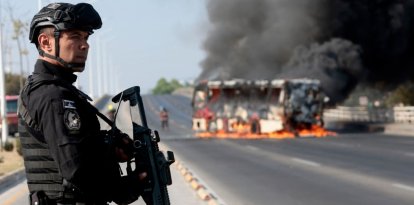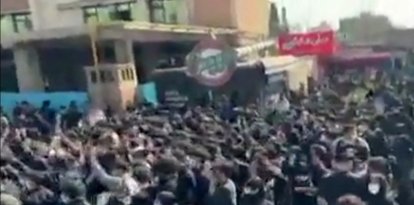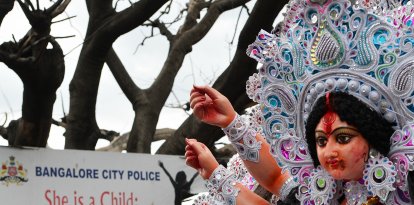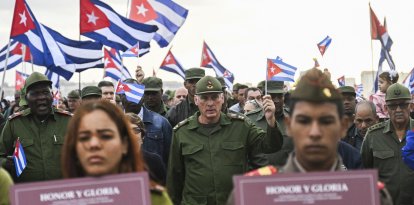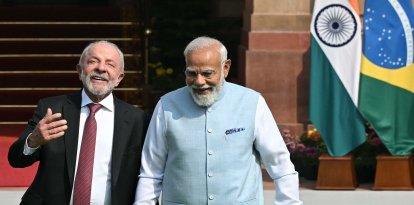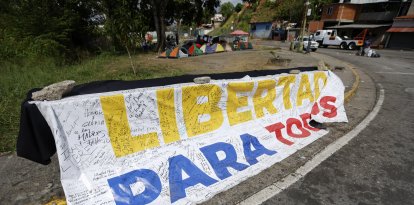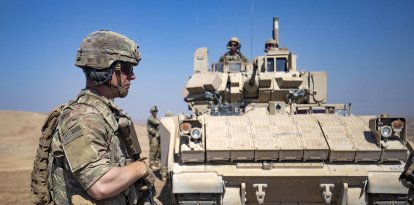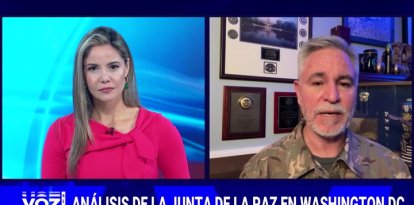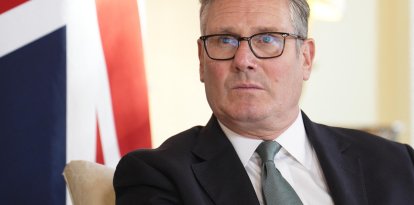Huge lines, patriotism and mobilization around the world: This is how the Venezuelan opposition primaries went
Venezuelans, both within and out of the South American country, came out to elect the new opposition leadership.
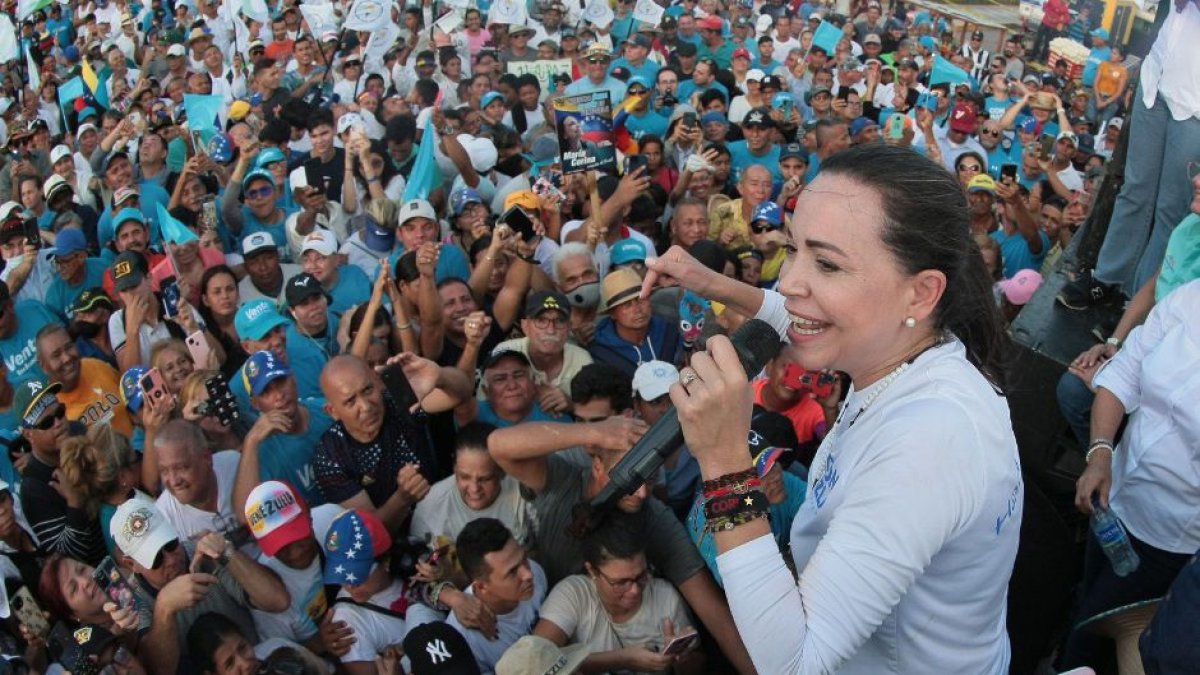
María Corina Machado, nueva líder de la oposición en Venezuela. (Cordon Press)
After months of intense effort, skepticism, and, finally, consensus, the Venezuelan opposition managed to organize and articulate an electoral process of primaries throughout the Venezuelan territory and in 28 countries internationally to elect not only a presidential candidate for the 2024 general elections but also a new political leadership.
At the time this article was published, the results were not yet disclosed. The National Primary Commission explained the reason: "We detected that our server, which functions as a communication channel, was blocked, which prevents us from giving results promptly."
However, the trend in almost all the voting centers was the same: María Corina Machado, leader of Vente Venezuela and favorite to win the primaries, swept practically everywhere.
The fact is inescapable: Machado's triumph is, ultimately, the defeat of the old opposition leadership made up of traditional parties and triumph that, although it accompanied other leaders who failed along the way, now she is the new leader of an opposition that is fighting to recover lost credibility and moralize Venezuelans again, who today exhibited civility worldwide.
Mass mobilization in Venezuela
In different regions of Venezuela, long lines were reported in most polling centers, both in the central area and in the interior of Venezuela. Caracas, the capital, had excellent attendance even in historically Chavista areas.
Some people even endured very adverse conditions. In the West of Caracas, in the Propatria sector, heavy rain appeared, but people remained in the lines.
Something similar happened in the city of Puerto Ordaz, the second most important city in Venezuela. A polling center was flooded due to heavy rains, but voters remained firm in their intention to vote.
Journalist Víctor Amaya, from Diario Tal Cual, reported that a tear gas bomb was launched against a polling center in the Santa Rosalía parish, also in Caracas. The elderly were affected, but even so, most of them returned to the lines to vote.
Busy polling centers in the United States
Daniel Chang, a Venezuelan residing in the United States, political analyst and columnist, was following the primaries from Washington, DC and Orlando, Florida .
In both places, Chang described the process as a success that showed great enthusiasm among Venezuelans in exile.
"In the centers that I was able to visit, in Washington, DC and Orlando, the people were quite motivated, quite enthusiastic about participating in the primaries. It really had been a long time since I saw the Venezuelan diaspora involved in a political event," said the analyst.
"It seems to me that it is possible that this is the beginning of a new way of seeing politics in Venezuela, clearly the traditional parties, specifically Democratic Action, A New Time and Justice First, were beaten and María Corina prevailed," Chang added. "She is now going to lead the opposition and she is going to be the main voice of the opposition against Chavismo, so I think it is an important beginning, we are going to see how the opposition is reconfigured in the coming months and how Machado reacts to the recent Barbados agreement."
Venezuelans responded to the call in Latin America
Sabrina Martin, a Venezuelan journalist from Voz Media, attended the primaries in Lima, Peru, and commented that the process managed to mobilize a good part of the diaspora in the Inca country.
"At the polling center that I attended in Lima, people attended in large numbers, demonstrating great civic value. They took the time to stand in line, sang the anthem and exercised their right to vote in a way they hadn't done in a long time."
In other parts of the region, such as Colombia, the country that received the most Venezuelans due to the mass exodus generated by Chavismo, the polling centers were overcrowded.
The process also motivated people to go to the polls in Chile, another country with many Venezuelans.
Spain, a success
From Madrid, Spain, Orlando Avendaño, deputy editor of Voz Media, followed the process and analyzed the people's enthusiasm and what they expected from these primaries.
"In Madrid, I understand that more than seven thousand people voted, which is less than 50% of those who registered, but it is not a bad number, especially considering that there was a lot of confusion, there was no clarity about the centers and there was a lot of information about the time, but being present I can say that the influx of people never decreased and there were many people. In fact, everyone was surprised by the number of people there," Avendaño said. “There was enthusiasm for the process and for María Corina Machado. People needed this. I needed to get out, participate, do something. Venezuela was completely depressed and this event was a boost," added Avendaño, who commented that Machado will emerge from this process strengthened as the "indisputable" leader of the opposition and will have the opportunity to articulate a movement that leads to the freedom of Venezuela.
This is a developing story.













